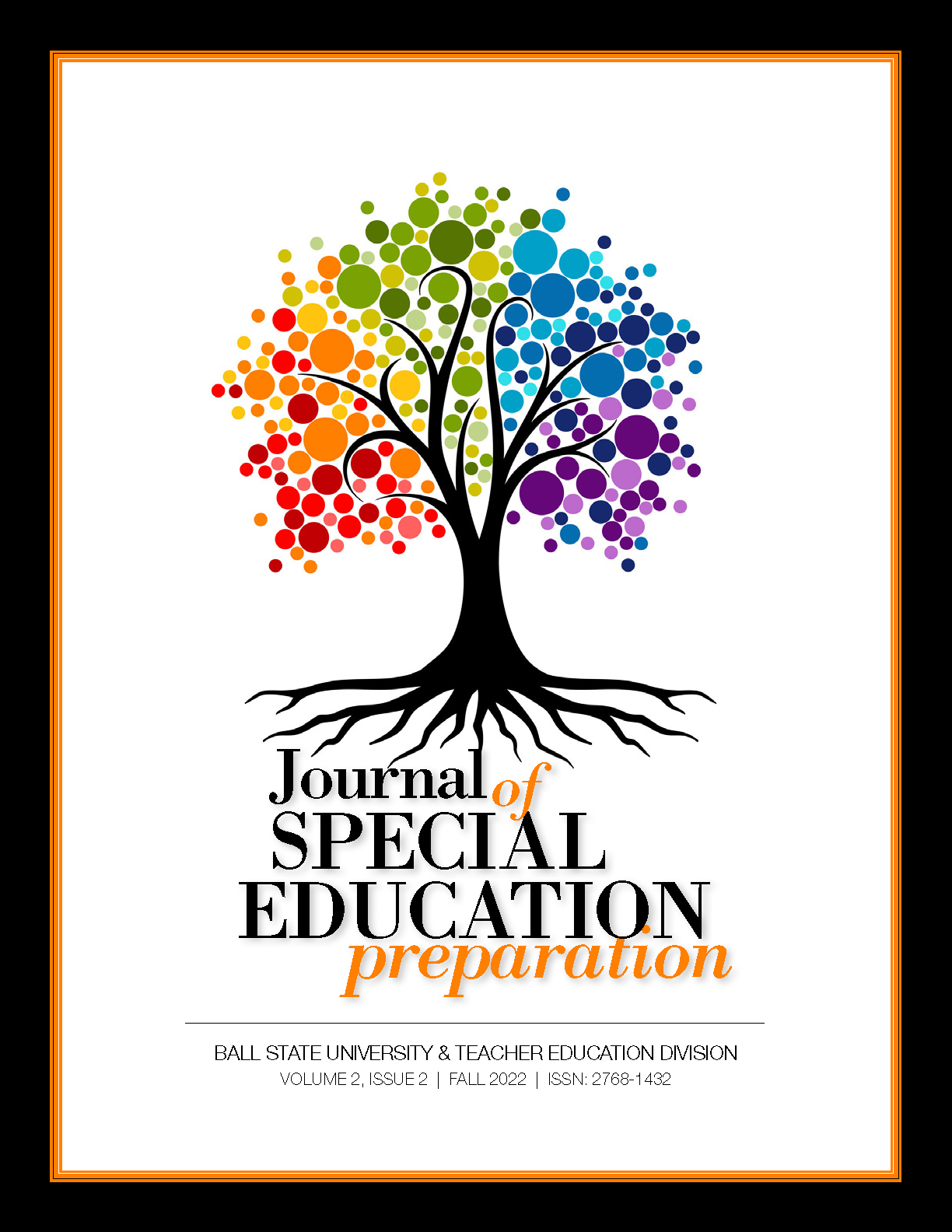Working Smarter: Using Universal Design for Learning to Spiral Curriculum in Small Special Education Preparation Programs
DOI:
https://doi.org/10.33043/JOSEP.2.2.30-41Keywords:
higher education, small programs, special education, teacher preparationAbstract
Although small teacher education preparation programs (STEPP) may struggle to implement robust program design frameworks compared to their larger preparation program peers, a collaborative design can help smaller programs with resource limitations. This collaboration can facilitate the design of effective and efficient teacher preparation programs (TPP) with a spiraled curriculum. Through scaffolding in TPPs, a spiral of support is defined as the process of learning continuous threads of information, gradually building to content mastery. These scaffolded components include case studies, role playing/modeling/feedback, and mentoring within the UDL framework. The use of case studies throughout a TPP provides a “continuum” of learning to prepare teachers to develop knowledge, skills, and practical experience within a diverse K-12 student population. Given a spiral of instruction to include role-play, modeling, feedback, and mentorship, preservice teachers can also engage in real world teaching and learning that go beyond the constraints of a classroom.
Downloads
Downloads
Published
How to Cite
Issue
Section
License
Copyright (c) 2022 Jennifer Walker, Marla Lohmann, Kathy Boothe, Ruby Owiny

This work is licensed under a Creative Commons Attribution-NonCommercial-NoDerivatives 4.0 International License.


